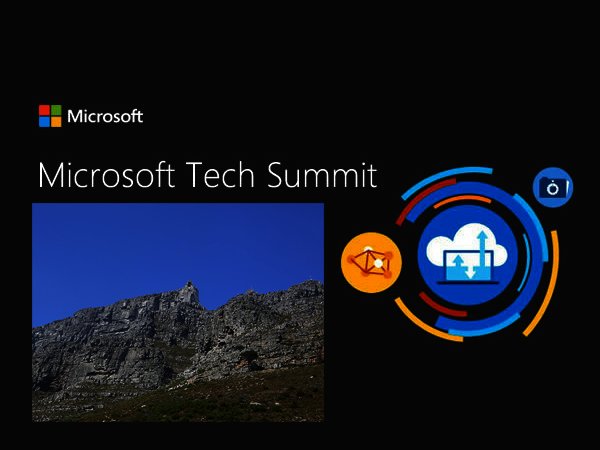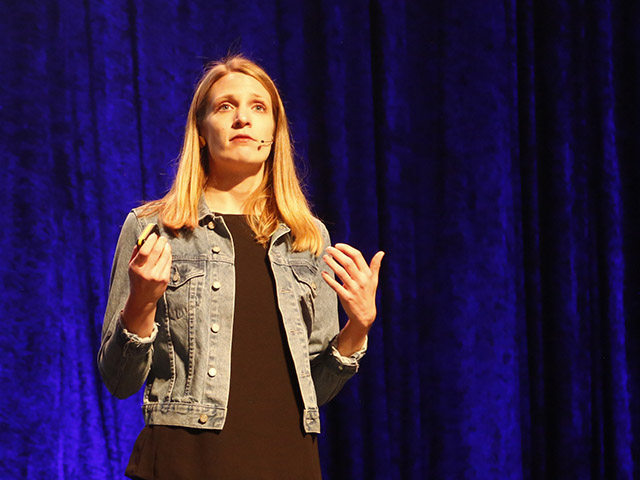Microsoft Tech Summit Part 2: Thriving in a digital world
By Ryan Noik 16 February 2018 | Categories: Corporate Events
NEWS SPONSORED BY:
Beyond the introduction sessions, that served to whet the appetite for what was to come, Microsoft’s Tech Summit, which took place in Cape Town this week, then offered keynotes and dedicated sessions. These began taking some of the four pillars hinted at by Victoria Grady, the GM for Azure Marketing, and expanded on them.
The question that arises at many of these types of conferences, is why should businesses pay attention to digital transformation? Answering that, and providing context, was Kethan Parbhoo, chief marketing and operations officer at Microsoft South Africa.
He pointed out that it is largely acknowledged that society as a whole is living in the digital era and in the midst of the fourth industrial revolution. “What we know from history is that organisations that have been able to take advantage of the technologies of their time have been able to thrive in that era,” he added.
This fact remains true whether one is a government organisation aiming to empower its employees and modernise its operations so as to serve citizens better, a financial services organisations looking to transform its products or a retailer trying to foster customer engagement and loyalty, he continued.

Kim Kischel, product marketing manager, Microsoft 365
Common denominators
Running through each of the aforementioned businesses though, is a common thread - the need for skills. In fact along with security and trust, skills was a recurring theme - the need for them, the best way to develop them, what the barriers are to fostering them. But even when the skills are in place, how can they best be applied to building a modern workplace environment?
Speaking to the latter point was the keynote speaker, Kim Kischel, the product marketing manager for Microsoft 365. She noted that one generation which is making a major difference to how modern workplaces are envisioned and catered to are the millennials.
The same generation that is all too often maligned, have an interesting view of how and where they want to apply their skills. Considering that they will comprise more than 50% of the workforce by 2020 according to Kischel, it is not unreasonable to expect those demands to be taken seriously.
“They want more open workspaces where they can easily interact and work as teams. They also seek a greater sense of purpose and want to identify more deeply with the mission of their companies,” she expounded. Another large priority is the option of working remotely from anywhere and at anytime. To offer this successfully though, requires the right tools so that employees of the near future can communicate and collaborate effectively, access their data securely and stay productive.
New ways of working
While each point was unpacked in further discussion and presentation, those components are not enough on their own to assure success. Rather, creativity was highlighted as being essential. “Don’t think of creativity as being limited to a designer or someone in advertising,” she urged. “Creativity is really about a general shift away from carrying out routine tasks and empowering every individual to think creatively about and be innovative in their work,” she added.
Further complicating matters is the prevalence of dramatically changing security risks, with the likes of ransomware dealing a heavy blow to companies whose data is vulnerable. Kischel noted that at the same time that security risks are becoming more sophisticated, companies need to cater for an open flow of communication, enable collaboration and empower their employees to do their best work.
Solutions in sight
It was to this end that Kischel highlighted Microsoft 365, which combines Windows 10 Commercial, Office 365 and Enterprise Mobility and Security. “With Microsoft 365 we are pivoting in a significant way to deliver these services as an integrated and complete solution rather than three separate products. It has intelligence built in at its core, and whether that is to drive creativity or help secure and manage your environment, it represents a fundamental change in how we design, build, deliver and support our products,” she enthused.
Kischel explained that more specifically, Microsoft 365 is intended to offer companies the tools to help them unlock the creativity and ingenuity of everyone in their organisation, whether that is finance, sales, engineering or IT.
Those, however, will be covered more in-depth in part 3.
Most Read Articles

Have Your Say
What new tech or developments are you most anticipating this year?



.jpg)
